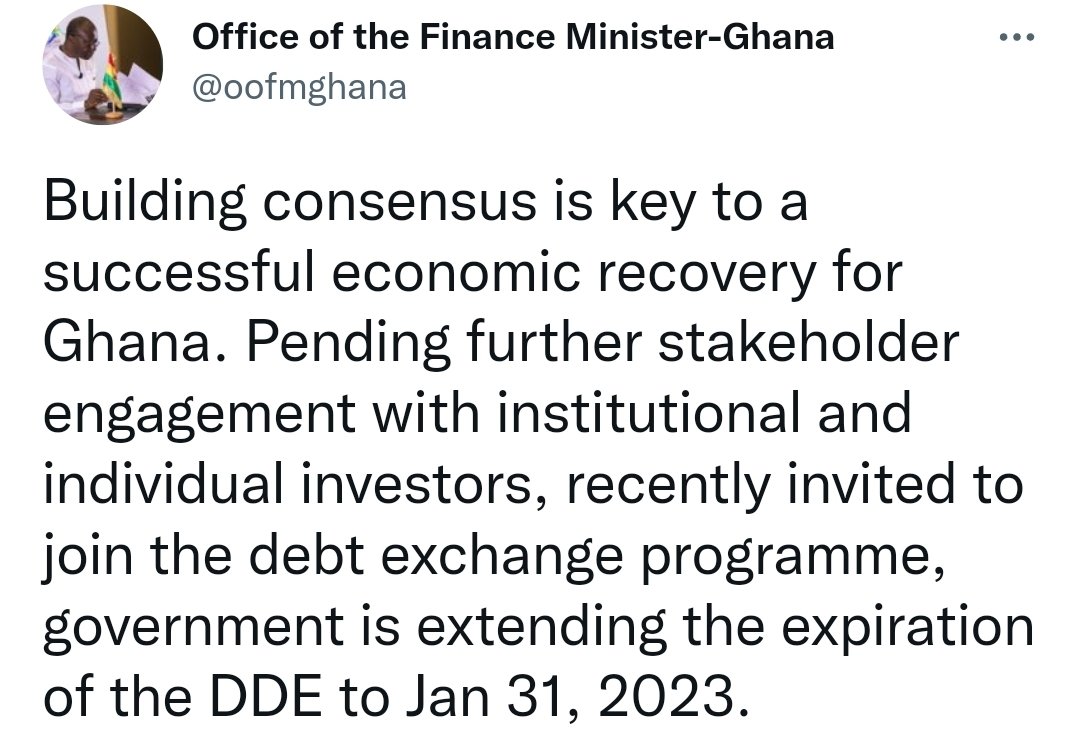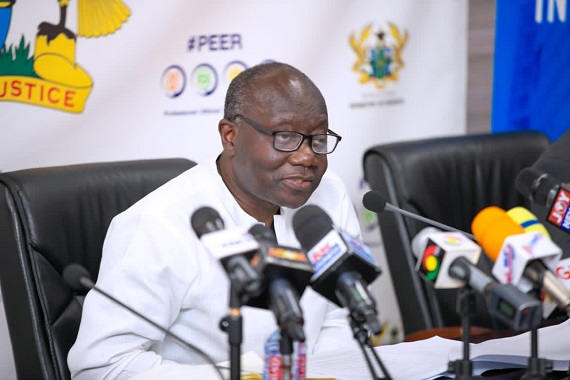The Government has extended the deadline for the domestic debt exchange again to January 31.
The Finance Ministry disclosed that the extension is to make way for stakeholder engagement.
This is the third time the government has extended the deadline for the bondholders to voluntarily exchange their bonds for new ones.
READ ALSO: Deadline for bondholders to sign onto debt exchange programme expires today
“Pending further stakeholder engagement with institutional and individual investors, recently invited to join the debt exchange programme, government is extending the expiration of the DDE to Jan 31, 2023,” the Finance Ministry tweeted.

Meanwhile, Private legal practitioner and a member of the governing New Patriotic Party (NPP), Gabby Otchere-Darko, has indicated that the refusal by individual bondholders to accept government’s debt exchange programme will worsen the country’s economic crisis.
According to him the hard stand rejection by the bondholders will not augur well for the country’s economic situation.
READ ALSO: Gov't extends deadline for domestic debt exchange programme again
The comment comes in the wake of growing public agitations from individual bondholders about government’s proposed domestic debt exchange programme.
In its quest to rescue the economy and secure a deal with the International Monetary Fund (IMF), government has proposed that all bondholders will not receive any interests on their bonds for the 2023 financial year.
The payment of dividends, according to government is likely to begin next year, 2024 at a discounted rate of five per cent.
In a series of tweets, Okyere-Darko explained that even though the terms of the debt exchange programme will affect individual bondholders, it is a necessary step which must be taken to salvage the economy.
He added that if the bondholders fail to cooperate with government, their bonds may be affected in the future in addition to a further deterioration of the economy.
His full tweets read:
"Ghana is in a very difficult place. What we are seeing with the mobilisation of agitation on individual bondholders poses a real and serious risk worse than what we witnessed when opposition to E-Levy succeeded in derailing an already shaky macroeconomic situation from 2021.
The debt exchange programme is voluntary for individual bondholders but a very necessary evil for our economy. Its success is critical to restoring macroeconomic stability, securing an IMF prog. It hits those of us holding bonds very hard. A straight no to it is no solution!
If the no-compromise opposition to it wins, what then has been achieved? It may lead to national debt default. So what then happens to the value of your bonds after! Potentially worthless. If participation is low, we jeopardize resolving the economic crisis and hardships.
I'm sorry but we have to face the hard/painful truths. We ain't sitting pretty. Our focus must be on how the burden to individual bondholders may be possibly eased; but not to take the hardline position of simply saying no to participation. It will come back to hit us harder!
At least, let's see, possibly, all pensioners, not just institutional investors, individual pensioners who are bondholders fully isolated from this exchange prog. I said earlier, whatever can be done to ease the burden on individual bondholders in this exchange prog must be done."





